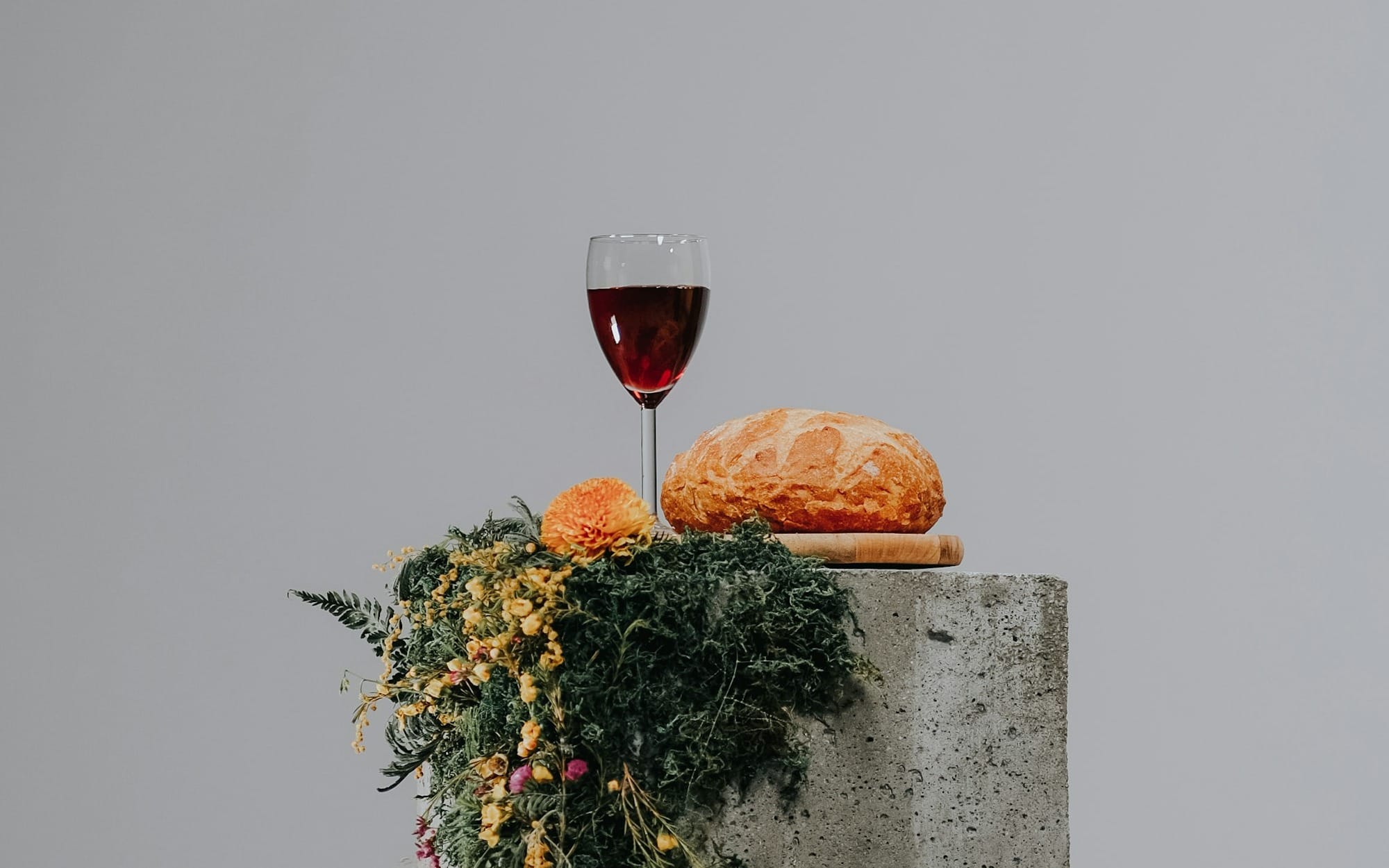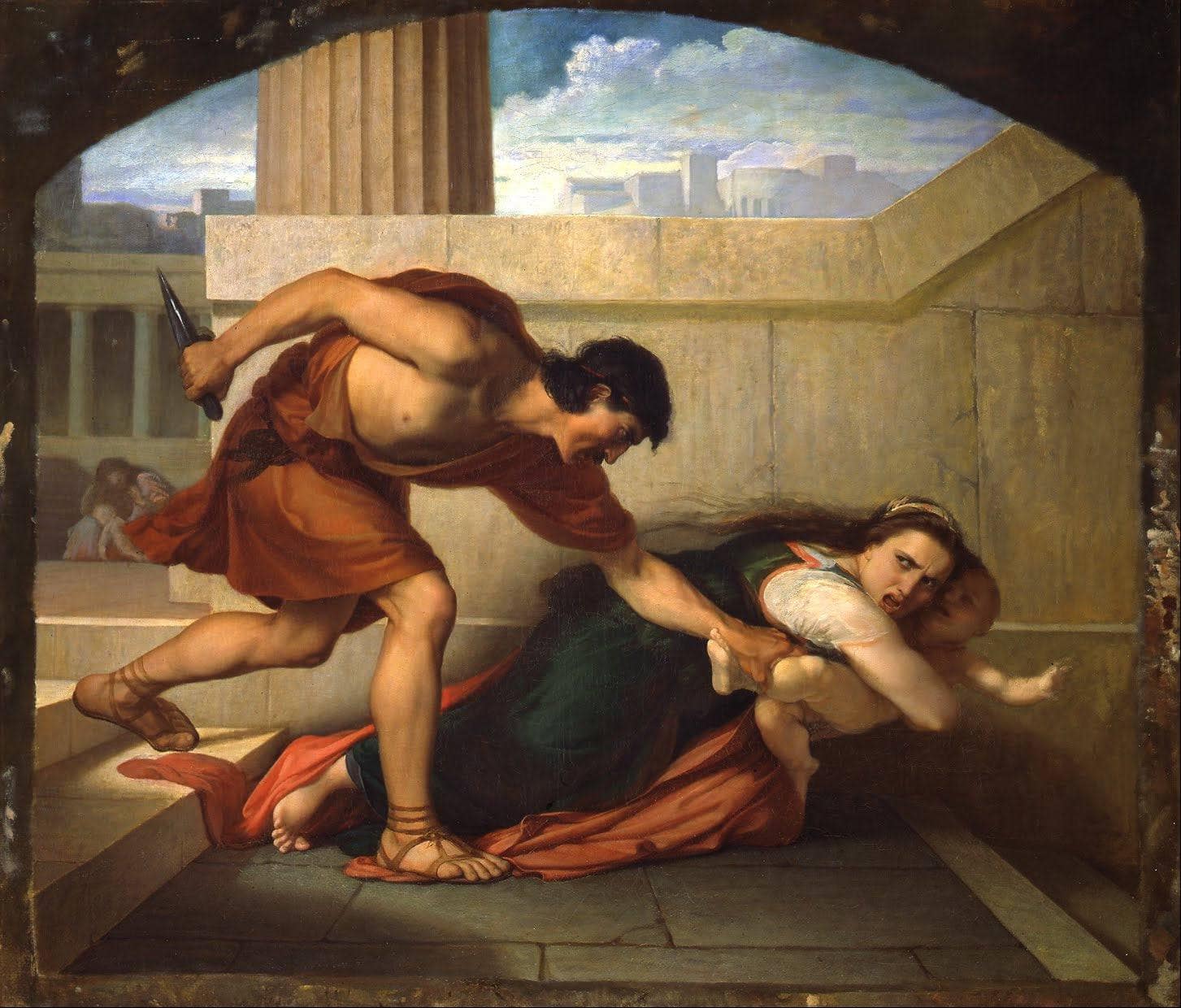My family and I moved to Washington, D.C. in March 2020, only a couple of weeks before everything shut down because of COVID. I've lived in many different kinds of places throughout my life, each one teaching me something about America and about myself.
When I was born, my biological mom and I lived in a poor housing project in Elkhart, Indiana. I knew poverty intimately—living alongside cockroaches and rats. I was actually one of the few white kids in a predominantly Black housing project. Then we were homeless for a few months, sleeping in a car. After that, I lived with a foster family in a trailer park in Alaska, then with my upper-middle-class aunt and uncle in Indianapolis, and later with my more blue-collar family in Goshen, Indiana. I spent the first ten years of my adult life in rural Iowa, in a tourist town on Lake Okoboji.
Then we made this massive, life-changing move to D.C. in 2020. When we told our church we were taking the job as pastor at Table Church, we said we were going scared. DC was almost the completely opposite of where we'd lived for the last ten years. Would we be able to make it?
My wife and I had grown up in medium-sized to small towns a couple hours away from Chicago, Indianapolis, or Detroit. Always majority-white areas and schools. We didn't often have to brush up against poverty or homelessness, or really confront our whiteness.
Some of that began to change when our church in Iowa started one of the first food pantries in northwest Iowa. We got quite a bit of pushback because the understanding was that there were no poor people up there. It was a wealthy town funded by lakes, tourism, and agriculture. What could you possibly need a food pantry for?
But as is often the case, the poverty existed. It was just kept secret or hidden. The trailer parks were off the highway, away from the tourist attractions. Our food pantry began serving folks who were food insecure. A large percentage of families in the school system were on free or reduced lunch. The vast majority of our clients weren't abusing the system—they weren't stupid, they weren't lazy. They were suffering from generational poverty, wage theft, unfair employment practices, or the boom-and-bust cycles that an economy based on agriculture and four months of tourism produces.
We had to put up with some criticism from folks in the congregation who didn't know any better. But in the end, we realized that when Jesus fed people who were hungry, he wasn't asking about their job or education status or how many applications they'd submitted that month. He just fed them.
We moved to D.C. and had only a week or two before we really couldn't get to know the city we'd just moved into. Back in those early COVID days, we knew very little about the virus. We were rinsing off our groceries, letting packages sit for days before opening them. Going outside was just something you couldn't do for a while. Eventually we learned more about the virus and began to take walks and venture out again.
We were warned when we moved here that folks weren't very friendly—that it wasn't a particularly friendly city. But we learned pretty quickly that wasn't actually true. The closer you get to downtown and the city center, with all the folks who commute in just for work, yeah, they're not particularly friendly. But as you walk around the neighborhoods, people say hello and ask how you're doing and strike up conversations. There are porch festivals and people who throw up barbecue stands and have parties on the street and ask if you want a drink or to smoke.
I will admit—and I'm embarrassed and ashamed to admit this—that there were times in that first year or so of living here where I felt uncomfortable because I had to confront my internalized racism and my fear of poverty.
I'd be lying if I said there were no homeless people in the city; that's obviously not true. I'd be lying if I said everybody was middle class and higher; that's also obviously not true. I'd be lying if I said I wasn't sometimes disconcerted by the amount of crime we'd hear reported on the news.
But we had to do some reframing. Living in that tourist town in Iowa, which had some of the highest drinking per capita in the state and very high amounts of drug use, there was plenty of crime. The difference was that crime was usually done by rich white people, so it wasn't cast as scary—just as folks "sowing their oats" or "letting off steam." But you better believe that every night you could go to the sheriff's website and look at the roster of jail arrests and see if you recognized anyone from the congregation.
I had to confront the fact that when I was in public spaces like grocery stores or the metro, I was often one of the few white folks (or, more likely, simply not the in the majority). I was uncomfortable and, I'll admit, sometimes felt unsafe—but only because I was brought up in a culture that lied to me and said Black people are unsafe. Like I said, I'm embarrassed and ashamed by that fact. It took longer than I'd like to admit to get over it. I had to actively, intentionally, and purposefully unlearn those biases because they were taught early and ingrained deep.
As you know, our president—with his 34 felony convictions, many bankruptcies, wage theft, frauds, etc.—has declared that D.C. is a hellhole, a shithole, unsafe, dangerous, trashy city. He's federalized our police department. He has sent in the National Guard. He has promised to send the homeless population far, far away.
What this is, simply, is prejudice, racism, and a fear of the poor put on big, broad, bold display.
Trump famously does nothing in the city Washington, D.C. itself. While other presidents visit local eateries or bookstores and other retail outlets, this president flies off to Florida every chance he gets and refuses to eat anywhere inside the city unless it already has the Trump name on it. This is a person who is deeply ignorant and uses that ignorance as the primary way he makes decisions.
What he doesn't know is how beautiful, thoughtful, kind, and amazing this city and its people are.
My children attend an absolutely wonderful school with teachers who are immigrants from all over the world, who speak all kinds of languages and teach them art and math and science. They get to go to museums for free thanks to the Smithsonian, learning things they would never have the opportunity to learn otherwise. Our family goes on walks and runs and bike rides. The city has some of the most park and green space per square mile of anywhere in the country.
Our church regularly welcomes folks experiencing homelessness into our worship services downtown. These folks express gratitude for free food and drink and genuine spiritual curiosity about the kind of gospel we're preaching.
When you begin to interact with people who work for the federal government, or the many social services programs, or the nonprofits and NGOs, you realize that this city is made up of people who deeply, deeply care—probably about you, probably about something that affects your day-to-day life. Whether that's education, retirement, healthcare, the environment, or transparency in government, pick one of your favorite topics to grump about regarding the government, and there's somebody working in this city trying to make your life better.
I've heard it said that the reason we get so uncomfortable around the homeless is because it puts the failures of our system on full display—the failures of capitalism right in front of us. Poverty as an abstract topic may bring up different feelings, but when you actually have to see someone sleeping on the street or begging for food or money at your car window, you're confronted in a real way with your own extravagance.
We have far, far more in common with a person experiencing homelessness than we ever will with any of the billionaires running our nation. It only takes one to three paychecks to end up without a home, while it would take a thousand years of paychecks to get to where these billionaires are now.
I love my city. I love Washington, D.C. Sometimes I feel bad calling it my city—I've only been here for five years, and there are folks who have been here for generations. But none of us deserve for our city to be placed under martial law, to have our police militarized against us, to have a deeply ignorant and racist president use that ignorance and racism as an excuse to play tyrant.
Of course, our city isn't perfect. There are homeless people, and there shouldn't be. There are schools that fail their children, and there shouldn't be. There is crime and theft and homicide, and there shouldn't be. But the solution to that is never, ever, ever going to be more police. We're already one of the most policed cities in the country.
When you see that people are struggling, when they feel like they have no recourse but crime and violence, the solution—if you actually want to prevent crime—is never going to be the National Freaking Guard. It's going to be investment in social services and education and affordable housing.
I feel bad for the folks in the White House who will never actually get to know the real Washington, D.C. I feel bad for folks across the country who only know Washington, D.C. as a caricature put up on the news. This is a city made up of real people, real families with real lives, going about their days shopping and going out to eat and taking their kids to school and flipping off people because they're bad drivers. Sure, a large group of us are employed by the federal government, but most aren't. They're just folks—everyday folks.
If you're a Christian and you see problems with a city, you should want to solve them the way Jesus solved problems. At no time did Jesus ever suggest that the solution to poverty was imprisonment, or that the solution to homelessness was jail time or deportation or human trafficking. We should question every politician who tries to "solve" these problems through violence. I can't think of anything more opposed to the way of Jesus.
My city deserves better. We all deserve better. This city is too beautiful and too good and filled with too many wonderful people to be treated this way.







Discussion